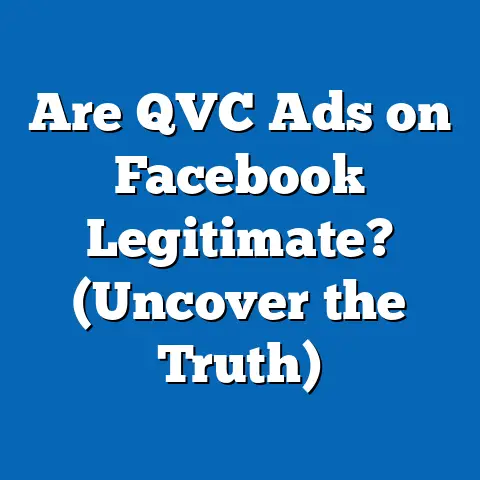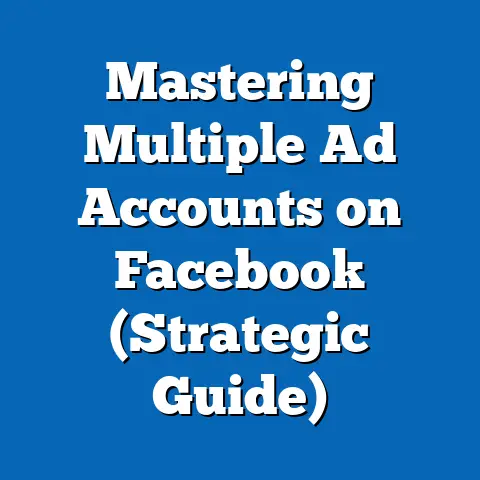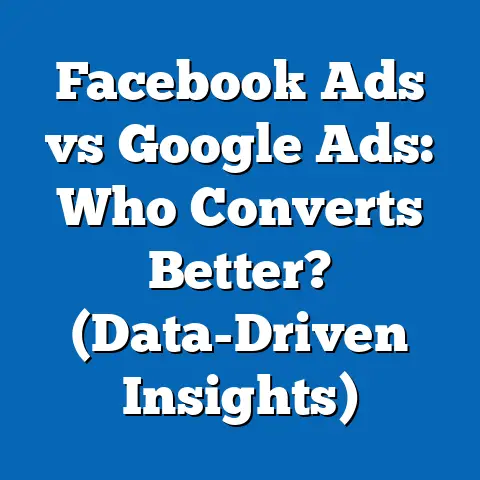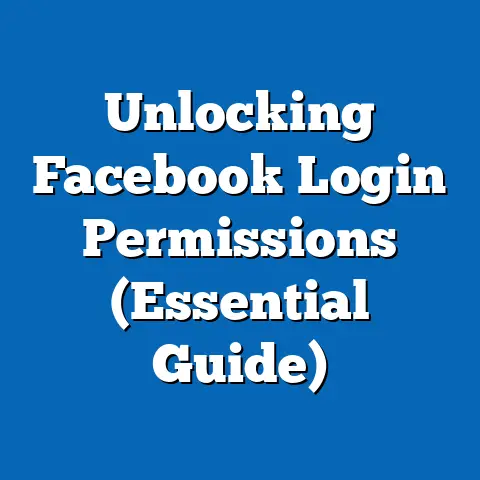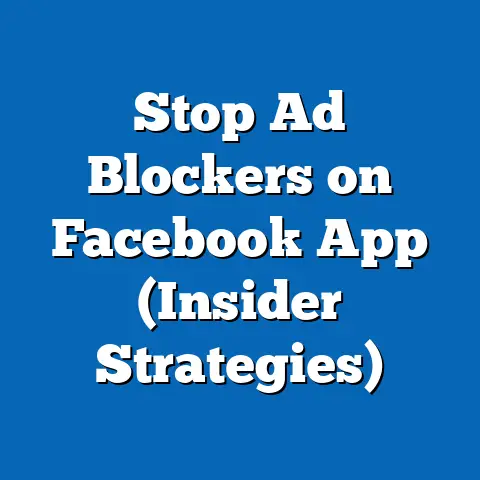Facebook Bans Reagan Movie Ads? (What This Means for You)
Did you know that in 2024, Facebook, one of the largest social media platforms with over 3 billion active users, reportedly banned advertisements for a biographical film about former U.S. President Ronald Reagan, citing violations of its advertising policies? This unexpected move has sparked heated debates about censorship, political bias, and the power of tech giants to shape public discourse. As a platform that has become a cornerstone of modern communication, Facebook’s decision to restrict content related to a historical figure like Reagan raises profound questions about free expression and the role of social media in influencing cultural narratives.
The incident is not just a standalone event but a reflection of broader generational and societal tensions over technology, politics, and access to information. This article will delve into the specifics of the ban on ads for the Reagan movie, explore the historical context of Ronald Reagan’s legacy across generations, analyze the characteristics of the generations most affected by this controversy, and examine the societal implications of tech platforms wielding such influence. By unpacking these layers, we aim to understand what this means for individuals, communities, and the future of open dialogue in a digitally dominated world.
Section 1: The Reagan Movie Ad Ban – What Happened?
In August 2024, reports surfaced that Facebook had blocked advertisements for the biographical film Reagan, starring Dennis Quaid, which portrays the life and presidency of the 40th U.S. President, Ronald Reagan. According to the film’s marketing team and conservative commentators, the ads were flagged for violating Facebook’s policies on “misleading content” or “political advertising,” though the exact reasoning remains unclear due to the platform’s opaque review processes. The decision led to accusations of political bias, with critics arguing that the ban was an attempt to suppress content favorable to conservative ideologies.
Facebook, now under the umbrella of Meta, has faced similar criticisms in the past for its content moderation practices, especially regarding political topics. The platform’s algorithms and human reviewers often struggle to balance free speech with the prevention of misinformation, a challenge that has intensified in the polarized political climate of the 2020s. This incident, however, stands out because it involves a historical figure whose legacy continues to resonate across generations, making the ban a lightning rod for broader discussions about censorship and cultural memory.
This controversy also comes at a time when trust in tech platforms is at an all-time low, with a 2023 Pew Research Center survey indicating that 60% of Americans believe social media companies have too much power over what people see online. For many, the Reagan ad ban is not just about a single movie but a symbol of larger concerns over who controls narratives in the digital age. How did we get here, and what does this mean for different generations who view Reagan’s legacy—and social media’s role—through distinct lenses?
Section 2: Historical Context – Ronald Reagan’s Legacy Across Generations
Ronald Reagan, who served as president from 1981 to 1989, is a polarizing figure whose policies and persona have left an indelible mark on American society. Often credited with revitalizing the U.S. economy through deregulation and tax cuts, as well as playing a key role in ending the Cold War, Reagan is celebrated by many as a champion of individual liberty and free-market principles. However, his administration also faced criticism for exacerbating income inequality, cutting social programs, and mishandling the AIDS crisis, leaving a complex legacy that continues to divide public opinion.
For Baby Boomers (born 1946–1964), who came of age during or shortly after Reagan’s presidency, his era often represents a turning point in American optimism and global influence. Many Boomers voted for or against him, experiencing firsthand the economic booms and social challenges of the 1980s. Their perceptions of Reagan are often tied to personal memories of his policies, whether it’s the prosperity of “Reaganomics” or the struggles of marginalized communities during his tenure.
Generation X (born 1965–1980), on the other hand, grew up in the shadow of Reagan’s America, often viewing him through the lens of pop culture and media portrayals rather than direct political engagement. For many Gen Xers, Reagan’s image is tied to the rise of MTV, the “Greed is Good” ethos of Wall Street, and the cultural conservatism of the 1980s. Their perspective is often more cynical, shaped by the economic recessions and social shifts that followed his presidency.
Millennials (born 1981–1996) and Generation Z (born 1997–2012) have no direct memory of Reagan, instead encountering his legacy through history books, documentaries, and political rhetoric. For Millennials, who came of age during the 2008 financial crisis, Reagan’s economic policies are often critiqued as the root of systemic inequality. Gen Z, raised in an era of social justice movements and digital activism, may view Reagan through a critical lens, focusing on his administration’s shortcomings on issues like race, gender, and public health.
Understanding these generational perspectives is crucial to interpreting the Reagan movie ad ban. For older generations, the ban might feel like an erasure of history or a personal attack on values they hold dear. For younger generations, it might raise questions about why a figure like Reagan remains so divisive—and why tech platforms are gatekeeping access to narratives about him.
Section 3: Generational Characteristics and Technology’s Role
Generational differences in technology adoption and media consumption play a significant role in how the Reagan ad ban is perceived. Baby Boomers, who largely adapted to digital technology later in life, often rely on platforms like Facebook for news and social connection, with a 2022 Statista report showing that 70% of U.S. Boomers use the platform regularly. For them, a ban on content related to a figure from their formative years can feel like a personal slight, especially if they perceive it as politically motivated.
Generation X, often seen as the “bridge” generation between analog and digital worlds, tends to be more skeptical of tech platforms. Having witnessed the rise of the internet in their adulthood, many Gen Xers are wary of corporate overreach and algorithmic bias, with a 2021 Pew survey indicating that 55% believe social media companies favor certain political viewpoints. This skepticism may lead them to question Facebook’s motives in banning the Reagan ads, even if they don’t hold strong opinions about Reagan himself.
Millennials and Gen Z, as digital natives, have a more nuanced relationship with social media. Millennials, who grew up alongside the rise of platforms like Facebook, often see these tools as double-edged swords—essential for connection but prone to manipulation. Gen Z, meanwhile, is the most critical, with a 2023 Common Sense Media report showing that 65% of Gen Z users believe social media platforms prioritize profit over user well-being. For these younger generations, the ban might not be surprising, but it could reinforce concerns about how tech giants shape cultural and political discourse.
These generational differences in tech usage and trust intersect with varying views on free speech and content moderation. Older generations may prioritize unrestricted access to historical content, while younger ones might advocate for stricter controls to prevent misinformation or harmful narratives. The Reagan ad ban sits at the crossroads of these debates, highlighting how technology amplifies generational divides over values and information access.
Section 4: Societal Implications – Power, Censorship, and Cultural Memory
This power dynamic raises critical questions about censorship and bias. Critics of the ban argue that it reflects a broader trend of tech companies suppressing conservative viewpoints, a claim supported by a 2022 study from the Media Research Center, which found that conservative content was flagged or removed at higher rates than liberal content on major platforms. On the other hand, supporters of content moderation argue that platforms have a responsibility to curb misinformation and divisive rhetoric, especially in an era of “fake news” and political polarization.
The Reagan ad ban also speaks to the fragility of cultural memory in the digital age. Historical figures like Reagan are not just relics of the past but symbols of ideological battles that continue to shape modern politics. By restricting access to content about him—whether through ads or other means—platforms risk altering how future generations understand history. This is particularly concerning given that younger generations, who rely heavily on digital media for education and entertainment, may encounter curated or incomplete narratives as a result.
In the workplace, this incident could exacerbate generational tensions over values and communication. Older employees might view the ban as an attack on shared history, while younger ones might see it as a necessary step to address problematic legacies. Companies navigating these divides will need to foster open dialogue while addressing the role of technology in shaping workplace culture.
Section 5: Economic and Cultural Factors at Play
Economically, the Reagan ad ban highlights the challenges faced by content creators and filmmakers in a digital economy dominated by a few tech giants. Independent films like Reagan, which may lack the marketing budgets of major studios, rely heavily on social media advertising to reach audiences. A ban on platforms like Facebook can significantly impact a film’s visibility and revenue, raising questions about fairness and access in the digital marketplace.
Culturally, the controversy reflects deeper anxieties about the erosion of shared narratives in a fragmented media landscape. Unlike the pre-internet era, when television and print media provided a relatively unified view of history, today’s digital platforms allow for hyper-personalized content consumption. While this can empower diverse voices, it also risks creating echo chambers where certain stories—like Reagan’s—are either glorified or erased based on algorithmic whims.
These economic and cultural factors are compounded by the political climate of the 2020s, marked by heightened partisanship and distrust in institutions. The Reagan ad ban is not just a business decision but a cultural flashpoint, fueling debates about who gets to tell history and how. For individuals across generations, this incident serves as a reminder of the stakes involved in navigating a world where technology shapes not just what we see but how we remember.
Section 6: Nuances and Diversity Within Generations
It’s important to acknowledge that generational responses to the Reagan ad ban are not monolithic. Within Baby Boomers, for instance, there are significant ideological divides—progressive Boomers may welcome scrutiny of Reagan’s legacy, while conservative ones decry the ban as censorship. Similarly, Millennials and Gen Z include individuals with varied political leanings, shaped by factors like geography, race, and socioeconomic status.
Qualitative research, such as focus groups conducted by the American Enterprise Institute in 2023, reveals that even within generations, opinions on tech censorship vary widely based on personal experiences with social media. Quantitative data, like a 2022 Gallup poll showing that 58% of Americans across age groups worry about online bias, further underscores the complexity of public sentiment. These nuances remind us that while generational trends provide a useful framework, they cannot fully capture the diversity of thought within any cohort.
Section 7: Implications for Society, Culture, and the Workplace
The Reagan ad ban has far-reaching implications for society, culture, and the workplace. Socially, it highlights the growing divide between those who trust tech platforms to moderate content and those who see them as overreaching censors. This divide, often split along generational and ideological lines, could further erode social cohesion if left unaddressed.
Culturally, the incident underscores the challenge of preserving historical narratives in an era of digital gatekeeping. As platforms like Facebook increasingly mediate access to information, there’s a risk that certain stories—particularly those tied to controversial figures like Reagan—could be sidelined or distorted. This has implications for education, public memory, and the arts, where open access to diverse perspectives is essential.
In the workplace, the controversy could influence how organizations approach topics like free speech, diversity of thought, and technology use. Employers may need to navigate generational differences in attitudes toward censorship and history, ensuring that policies foster inclusivity without silencing dissent. Training on media literacy and critical thinking could also help employees across age groups better understand the role of tech platforms in shaping information.
Conclusion: Looking Forward with Uncertainty
The ban on Reagan movie ads by Facebook is more than a fleeting controversy—it’s a window into the complex interplay of technology, history, and generational values in the 21st century. As we’ve explored, this incident reflects broader societal tensions over censorship, cultural memory, and the power of tech giants to shape discourse. It also highlights how different generations, shaped by unique historical and technological contexts, interpret such events through distinct lenses.
Looking ahead, the implications of this ban remain uncertain. Will it lead to greater scrutiny of tech platforms, prompting reforms in content moderation practices? Or will it deepen existing divides, fueling further polarization across generational and ideological lines? One thing is clear: as digital platforms continue to dominate our lives, the balance between free expression and responsible moderation will remain a defining challenge of our time.
For individuals, the takeaway is a call to engage critically with the information we encounter online, recognizing the unseen forces that shape what we see and hear. For society, it’s a reminder that preserving open dialogue—across generations, platforms, and perspectives—is essential to understanding our past and building a shared future. As we navigate these uncharted waters, the Reagan ad ban serves as a stark warning of the stakes involved and the need for vigilance in protecting the diversity of thought in a digital world.

